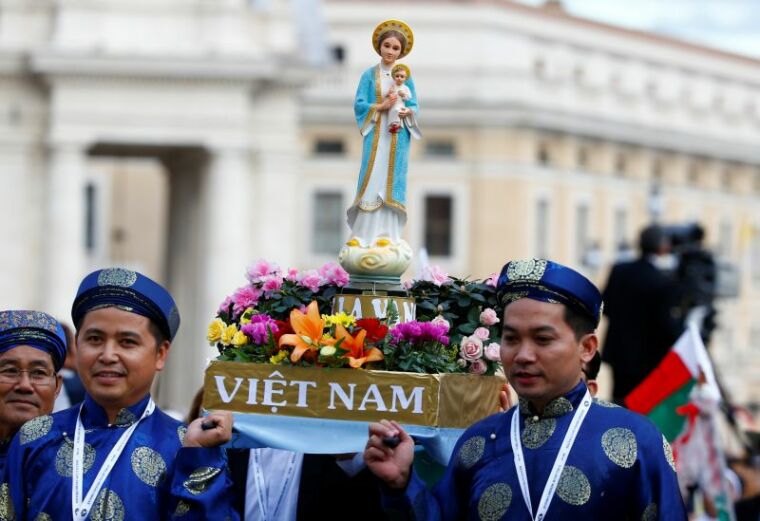Vietnam making progress, but still has a long road to religious freedom

WASHINGTON (Christian Examiner) – Vietnam has made progress in inching toward religious freedom, but still has miles to go to see it fully implemented, the U.S. Commission on International Religious Freedom has said in a press release.
Vietnam's designation as a "country of particular concern" (CPC) was removed a decade ago as the U.S. State Department began to further normalize relations with its former enemy. Since then, Vietnam has become a significant trade partner with the U.S. and the U.S. has allied with the country over Chinese military expansion into Vietnam's territorial waters and airspace in the South China Sea.
Vietnam is at a crossroads. Its government needs to stop oppressing believers and enact legislation that respects religious freedom. If it does not, USCIRF will have to continue calling for its designation as a country of particular concern.
USCIRF said it is watching "with concern" a new law governing religion that is working its way through the country's National Assembly. Freedom of religion is ostensibly guaranteed in the country's constitution, but that protection extends only so far as religious belief is not opposed to the will of the people (or those communist officials elected to the governing body).
"Vietnam is at a crossroads," USCIRF Chair Thomas J. Reese said. "Its government needs to stop oppressing believers and enact legislation that respects religious freedom. If it does not, USCIRF will have to continue calling for its designation as a country of particular concern."
USCIRF has recommended Vietnam as a CPC since 2001, though the State Department is not bound to abide by the recommendation. Still, in its report in 2016, USCIRF noted:
"The government has made dramatic openings with respect to religious freedom, including considering more space for charitable work by religious organizations and, according to government officials, allowing more houses of worship. Also, government officials informed USCIRF during the year that interactions between the government and individuals they referred to as 'religious dignitaries' have increased, improving communication and understanding."
"Nevertheless, the government continues to view some groups and activities as threatening to the state and to Vietnam's unified national identity. This has had mixed results for religious organizations, as evident in the contrasting experiences of state-sponsored religious organizations versus independent groups, or of registered organizations versus unregistered ones. Some have broad freedom to freely practice their faith, and others have comparatively little," USCIRF's 2016 report said.
Vietnam's National Assembly will consider its "Draft Law on Religion" by year's end. The measure includes, USCIRF notes, some "positive language." It could extend "legal personality" to smaller religious organizations, reduce the time it takes for religious groups to obtain registrations or permits, encourage the establishment of religious schools, and exempt churches from permitting mechanisms (seeking a permit for a pastor to leave one church to go to another).
USCIRF called on Vietnam's government to cease its intrusive behavior in the internal operation of religious groups, allow groups to assemble, and protect believers from abusive officials. Doing so would benefit small religious groups, and especially churches amond the indigenous Montagnards (ethnic minority mountain tribes).
"USCIRF urges the United States to continue discussions with the Vietnamese government about its religious freedom policies, including the religion law and its implementation, emphasizing the importance of adhering to international human rights standards," the statement from USCIRF said.